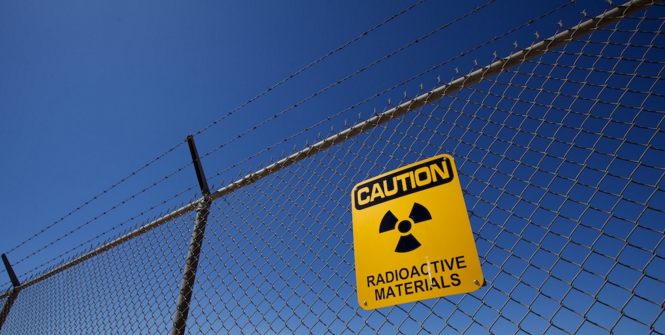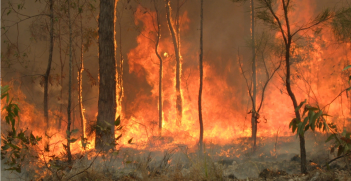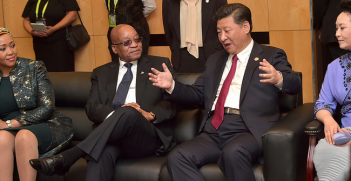2016’s Nuclear Security Index

There is no room for complacency on nuclear security.
US President Barack Obama took office with a vision for a world free of the threat of nuclear weapons. Curiously, in his final State of the Union address on Jan. 13, with the exception of the Iran deal, he failed to mention nuclear issues. Yet while he may not have succeeded in the vision of a world free of nuclear weapons, he did initiate and will preside over the final nuclear security summit whereby all the world’s leaders with relevant nuclear programs signed on to the agenda of securing all civilian nuclear materials and facilities. The first summit was held in Washington in April 2010 and the final one will be held there this year.
In this endeavour, too, NGOs have been active, with the most prominent being the Washington-based Nuclear Threat Initiative. (Disclosure: The Asia-Pacific Leadership Network, of which professor Chung-in Moon from Yonsei University in Seoul and I are the co-convenors, is supported by NTI). Founded in 2001 by philanthropist businessman Ted Turner and former U.S. Sen. Sam Nunn, NTI is actively engaged in shaping, developing and implementing nuclear security programs. In 2008, in partnership with others and collaboration wit the IAEA, NTI helped to set up the World Institute for Nuclear Security in Vienna. With over 3,000 members from 115 countries, WINS brings together those responsible for looking after nuclear security to swap ideas, share best practices and exchange lessons learned. Last year NTI also helped set up the IAEA-administered, low-enriched uranium international nuclear fuel bank in Kazakhstan to facilitate the peaceful use of nuclear energy with minimal proliferation threats.
The flagship NTI publication is the biennial Nuclear Security Index, the third edition of which was published Jan. 14 in Washington. Prepared jointly by NTI and the Economist Intelligence Unit with the mission of developing global standards and best practices for securing all nuclear materials, the release of all three has been widely covered by the global media.
The 2016 index tells us a lot that is interesting. Australia maintains its overall top ranking among the world’s 24 states with weapons-useable nuclear materials, but it is joined by six other states with a perfect score of 100. Of the 24, four became parties to key international agreements related to nuclear materials security during the biennium, six made new voluntary commitments (such as contributing to the IAEA Nuclear Security Fund), and eight passed or updated laws and regulations on cybersecurity.
Japan is assessed as the most improved state, bettering its score by 27 from two years ago to join the group at the top with perfect scores. Among nuclear-armed states, France, the U.S. and the United Kingdom score the highest while the U.S., India, Russia and the U.K. are the most improved.
Rankings aside, on the upside, 12 countries decreased their quantities of weapons-usable nuclear materials over the four-year period measured by the index, and Uzbekistan removed all of its weapons-usable nuclear material. On the downside, no improvements have been made in the core protection and control measures assessed by the NTI Index.
More worrying, the current global system for securing nuclear materials has major gaps that prevent it from being comprehensive and effective: no common set of international standards and best practices exists, there is no mechanism for holding states with lax security accountable, and the legal foundation for securing materials is neither complete nor universally observed.
Most worrying, as my center reported in our own state of play on nuclear weapons last year, 83 percent of all fissile stocks are military materials and thus remain outside existing international security mechanisms. Moreover, participation in international peer review — a very effective tool for improving performance and building confidence in others about the integrity of a state’s security remains — limited: only 16 of the 24 states with weapons-usable nuclear materials have had a nuclear security peer review in the past five years, and seven have never had one.
An act of sabotage against a nuclear facility could result in a significant radiological release, similar in scale to the release when a tsunami hit the Fukushima nuclear power plant in 2011. The 2016 index for the first time assesses nuclear security conditions related to the protection of nuclear facilities against acts of sabotage for 45 countries with nuclear power plants or research reactors.
The index finds troubling shortfalls in how well countries are protecting nuclear facilities against sabotage and the emerging threat of cyberattacks. Twenty states lack even basic requirements to protect nuclear facilities from cyberattacks and score zero. Too many countries remain unprepared to deal with cyberattacks that might lead to sabotage.
Overly-sensitive governments will attack the messenger with full “Yes Minister-style” efforts to belittle and discredit the index and NTI, casting aspersions on methodology, motives, bias, data reliability, etc. But sensible states will make full use of the NTI Nuclear Security Index as a global benchmark against which to track and improve their own record.
Professor Ramesh Thakur is the Director of the Centre for Nuclear Non-Proliferation and Disarmament at the Crawford School of Public Policy at Australian National University. He is also a former Assistant-Secretary General of the United Nations. This is an extract of an article originally published by The Japan Times on 20 January. It is republished with permission.





